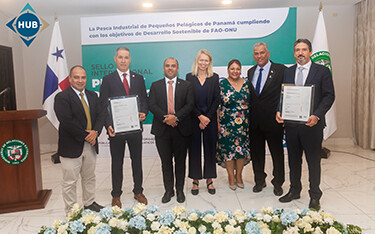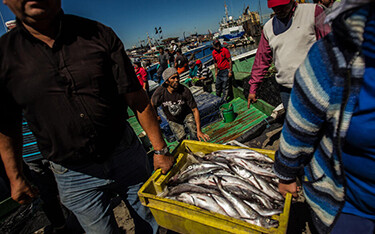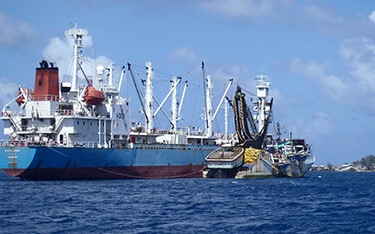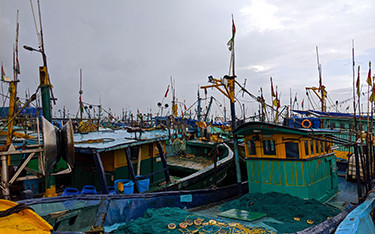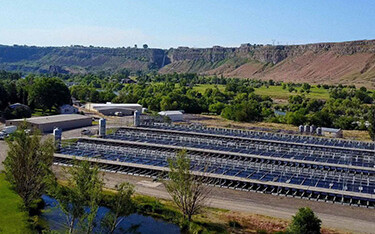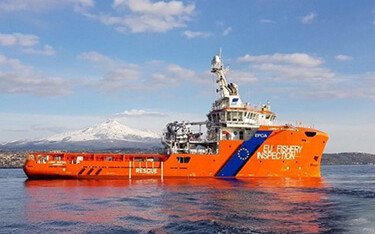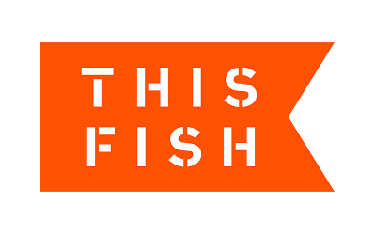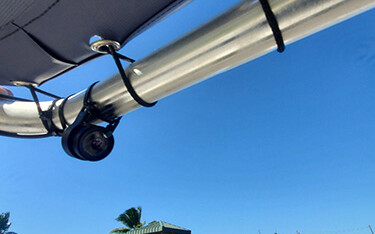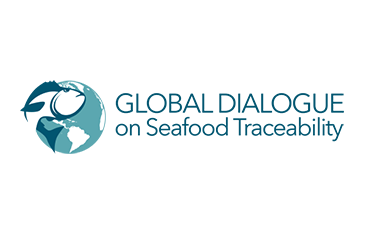Emma Desrochers is a freelance journalist based in Waialua, Hawaii, who writes about fisheries and sustainability. She graduated from Yale University in June 2021 with an undergraduate degree in environmental studies and mechanical engineering. She has contributed to the environmental conservation field through internships located in Ecuador, Thailand, and Hawaii.
Author Archive
The Panama small-pelagic fishery, the first fishery improvement project (FIP) to enter the MarinTrust Improver Program in 2015, has now passed the full MarinTrust fishery assessment and the fishmeal and fish oil production sites that have been sourcing from the fishery have achieved MarinTrust certification.
“This recognition is the result of more than seven years of hard work in the fishing sector and an indication that our nation
… Read MoreOne Ocean Worldwide Coalition is urging the Convention on International Trade in Endangered Species of Wild Fauna and Flora (CITES) members to take the opportunity to end the global shark-fin trade at the upcoming CITES CoP19 meeting in Panama in November 2022.
The One Ocean Worldwide Coalition was founded in 2022 by Fins Attached Marine Research and Conservation, For the Oceans Foundation, Rob Stewart Sharkwater Foundation, and the United
… Read MoreThe World Wildlife Fund (WWF) and Walmart Foundation have teamed up to develop a holistic approach to improve wild-caught fisheries and aquaculture in Chile.
The 18-month pilot collaboration is intended to serve as a pilot for further collaborations elsewhere around the world, according to both organizations.
The Walmart Foundation, established in 1982 to support local communities, and WWF, founded in 1961 to conserve natural resources,
… Read MoreThe Marine Stewardship Council (MSC) has published version 3.0 of its fisheries standard, meaning fisheries entering MSC assessment for the first time have until May 2023 to adhere to the new standard, while certified fisheries have six years to come into compliance.
MSC's standard review and update, considered the most-comprehensive ever done by the organization, began in 2018 and has important implications for tuna
… Read MoreThe seventh and last installment of the Seafood Metrics Report series, “Progress Toward Sustainable Seafood – By the Numbers” has been released.
The report follows six other metric reports published in 2008, 2010, 2013, 2015, 2017, and 2020, and the latest edition of the report examines global seafood community trends and progress as well as recent key data insights, emergent trends, and best practices –
… Read MoreThe largest trout producers in the U.S. – Riverence Provisions LLC and Riverence Farms LLC – have achieved the Aquaculture Stewardship Council (ASC) certification.
Boise, Idaho-based Riverence Farms operates six grow-out farms primarily raising steelhead and golden rainbow trout, while Riverence Provisions is made up of eight grow-out farms raising rainbow trout. The eggs for these trout come directly from Riverence’s
… Read MoreThe European Court of Auditors (ECA) has published a report that calls for stronger sanctions and checks by the member-states of the European Union to combat illegal, unreported, and unregulated (IUU) fishing.
The ECA is the E.U.’s independent auditor assessing the effectiveness, efficiency, legality, and regularity of E.U. actions. Its special report, “E.U. action to combat illegal fishing – Control systems in place but
… Read MoreThisFish, a developer of seafood traceability and production software, has created a software directory for the seafood sector.
The directory includes over 350 software companies, with filters allowing industry users to find suitable providers for their needs, covering software, artificial intelligence, and blockchain technologies.
According to ThisFish, 307 new software companies were founded in the past decade – making up
… Read MoreThe Net Gains Alliance (NGA) has released recommendations for an electronic monitoring program designed to advance data modernization in the U.S. seafood industry.
Contained in the report, “Recommendations for electronic monitoring program design and requests for proposal,” NGA’s effort was focused on defining fishery monitoring objectives and evaluating a full suite of tools and approaches to best achieve those goals. The
… Read MoreThe Global Dialogue on Seafood Traceability (GDST) has reorganized and been relaunched into a permanent and independent entity with a paid membership model.
The World Wildlife Fund (WWF) and the Institute of Food Technologists (IFT) convened the GDST as an ad hoc, NGO-facilitated process in 2017, and the two organizations will remain engaged as stakeholders and supporters with the new GDST, according to a release.
“The new GDST is open for
… Read More






